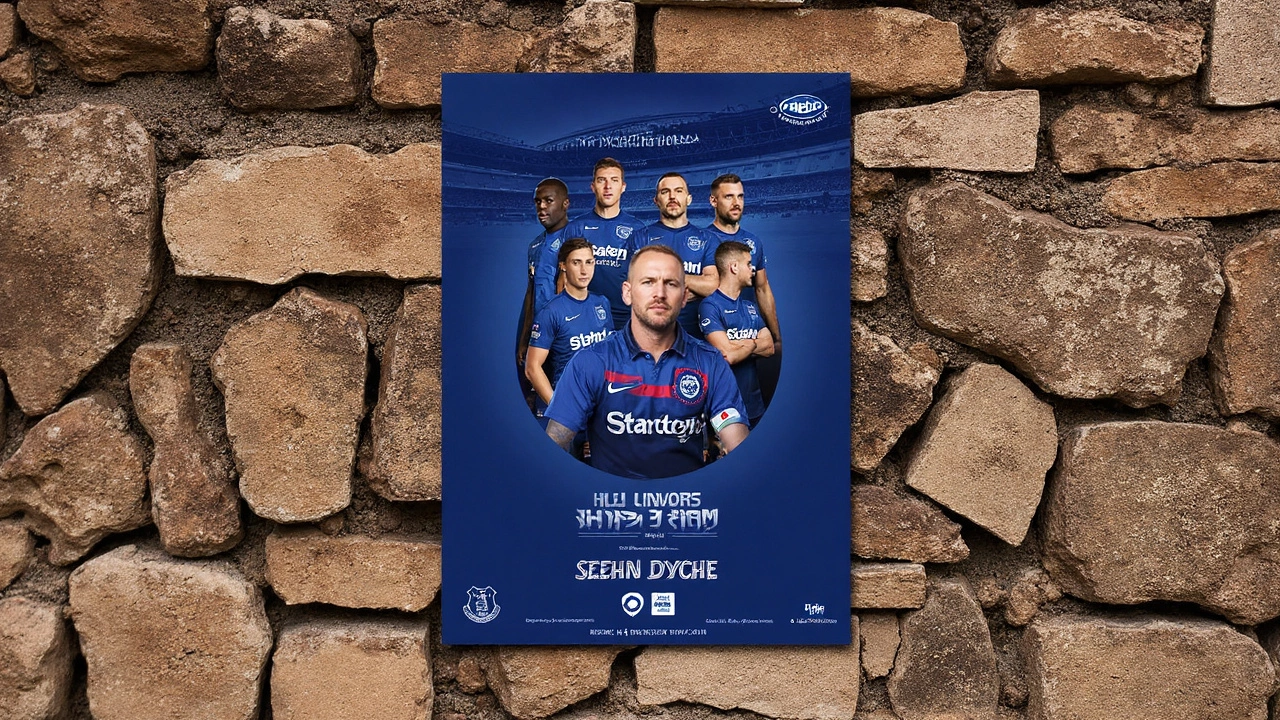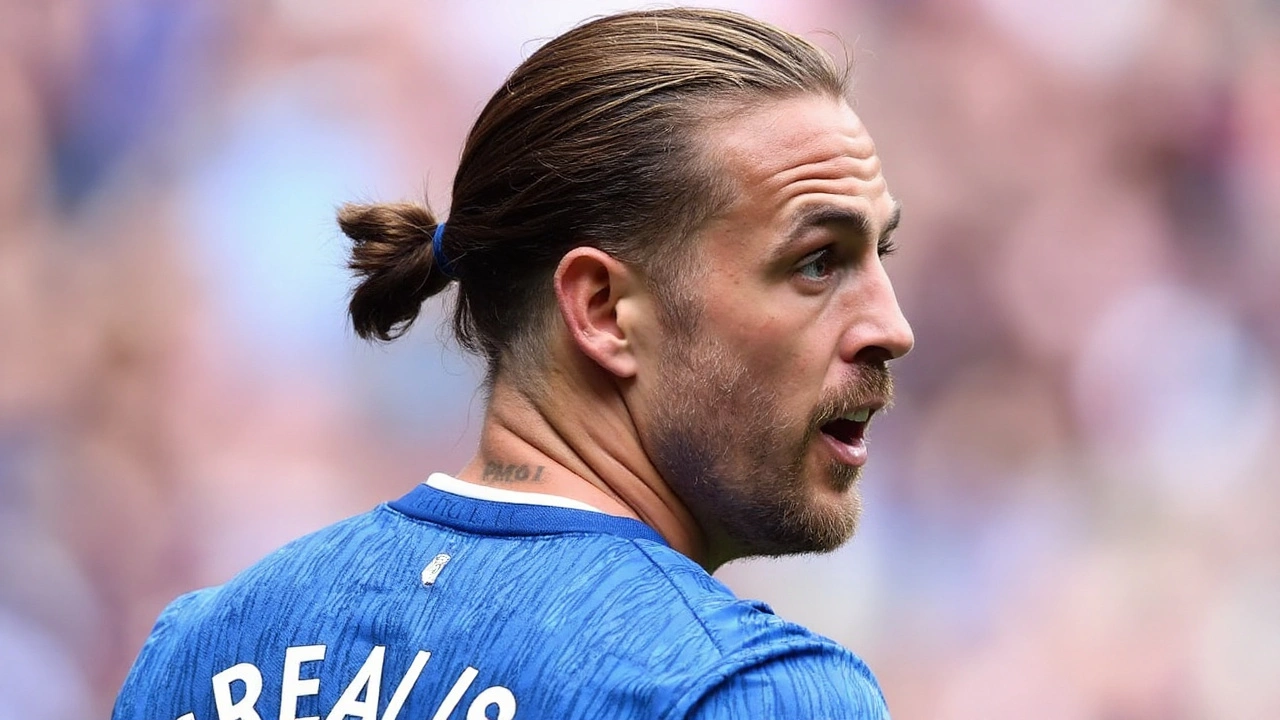A debut that felt like a reset
Jack Grealish didn’t just start his Everton career; he hit the accelerator. On his home debut at Goodison Park, the 29-year-old set up both goals in a 2-0 win over Brighton and then delivered a line that will echo all week: he’s “enjoying football again.” For a player leaving the Premier League champions, the message was clear. This move is about minutes, freedom, and feeling valued as much as it is about results.
The performance matched the mood. Given a first start on the wing, Grealish played with the width and license that many felt had gone missing at Manchester City. He drove at defenders, stayed brave on the ball, and kept asking for it. The end product—two assists—underlined why Everton moved for him. It wasn’t flashy for the sake of it; it was direct, helpful, and exactly what the game needed.
The reaction inside Goodison was instant. Grealish got the roars every time he beat a man or punched a pass through the lines, and he looked like a player who fed on that energy. Pundits Rob Green and Troy Deeney noticed the same thing. Their take: he thrives when he feels loved. And at Everton, from the touchline to the stands, he’s getting that.
His post-match interview added edge to the story. “Enjoying football again” can sound like a simple throwaway line, but in this context it read as a quiet swipe at the grind he lived through at City—rotation, strict roles, constant competition with elite teammates. Nobody questions the medals he won there, but happiness is different. Grealish has had spells when he was in and out of the XI, battled for rhythm after injuries, and saw big games pass without a starting spot. That wears on anyone.
At Everton, the brief looks different. He can take risks without looking over his shoulder, stretch the pitch, and carry the ball more often in one-on-one situations. The tactical trade-off is real—he’ll be asked to track back, handle transitions, and press in a compact shape—but the give-and-take suits him. He’s not boxed into recycling possession; he’s encouraged to break lines and create.
The two assists were the clearest proof. They weren’t moments of chaos. They were decisions made early and executed cleanly, the kind of actions that calm a team and lift a ground. For a player whose reputation was built on beating a man and drawing fouls, this was sharp, pragmatic creativity. Everton didn’t just get a big name; they got output.

What it means for Everton—and what it says about City
Everton have been crying out for repeatable creativity: someone who can take the ball on the flank, make something happen, and keep doing it week after week. Grealish can be that outlet. He gives them control in the final third, helps tilt the field, and brings a bit of arrogance that Goodison enjoys when the team is on top. If he keeps supplying chances, the forwards will cash in.
The other upside is emotional. Everton’s recent seasons have been tense and exhausting. A player of Grealish’s profile wanting this move—and clearly enjoying it—changes the mood. Supporters latch onto that. The Premier League’s official Instagram spotlighted his debut, and the comments were flooded with Everton fans talking about belief, swagger, and finally having a winger who scares full-backs.
There’s a challenge baked into this, too: consistency. Grealish’s career has had streaks of brilliance and then quieter patches. Staying fit, keeping the same tempo away from home, and delivering when teams set up to stop him—those are the next steps. His response on day one suggested he knows that. The body language was different: shoulders relaxed, head up, scanning for the ball instead of waiting for instruction.
For Manchester City, the subtext is familiar. They have a squad that can survive almost any exit, and they will move on with options in wide areas. What Grealish’s comment highlights, though, is how demanding that environment is. The tactical precision that wins titles can also squeeze the joy out of expressive players. City will say the structure is non-negotiable. Grealish, in his own way, just said he wanted something else.
This isn’t a feud. There was no public row, no scorched-earth farewell. It’s a footballing choice that makes sense for both sides. City keep their machine humming. Everton get a match-winner who needed a home. And the Premier League gets a storyline that will be worth tracking every weekend: can Grealish turn a brilliant debut into a defining season?
The early signs are there. He looks quicker off the mark, more decisive with his first touch, and more willing to play the killer pass. The teammates around him are looking for him earlier, trusting him to carry the creative load. And the manager clearly gave him the green light to be himself. That combination—freedom with responsibility—might be exactly what unlocks his best years.
Brighton were a good barometer. They’re well-coached, they punish mistakes, and they don’t usually give wingers a free ride. To come through that with two assists and control key moments says plenty about where Grealish’s head and legs are right now. It also gives Everton something they’ve lacked too often: a reliable route to goal when the game tightens.
The quote will stick because it’s simple truth: enjoying football matters. Points matter more, of course, and he delivered those too. If this is the tone-setter, Everton have found exactly what they needed—and Grealish has found what he missed.
